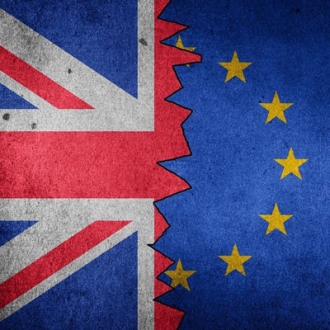The FERMA and Airmic Brexit newsletter
FERMA and Airmic are excited to give you joint produced Brexit newsletter designed to give risk professionals unique insight into Brexit related risks and mitigation strategies.
Links

Cross border disputes post Brexit – will there be an increase in arbitrations?
Whatever Brexit deal is ultimately delivered, the handling of cross border disputes between the UK and EU looks set to change. With the uncertainty that might bring, will there be a rise in arbitrations? Partner Stuart Evans and Solicitor Santiago Graffigna from BLM’s Commercial Disputes team provide risk managers with their views on this important European issue.

Update on Solvency II since Brexit day
On Friday 31 January 2020, the United Kingdom formally left the European Union. A transition phase then started and will last until 31 December 2020. During this transition, all EU legislation will continue to apply for UK and EU businesses and citizens.

London Insurance Market looking to expand international trade relationships, says IUA
Dave Matcham, chief executive of the International Underwriting Association, looks ahead to a post-Brexit environment. Much effort has been expended by London Market insurance companies preparing for the possibility of a UK withdrawal from the EU and reversion to a trading relationship based on World Trade Organisation (WTO) rules.

Post-Brexit supply chain: how import controls will hit businesses
Brexit may create uncertainty in an organisation’s supply chain but by taking a strategic view of their strategic relationships as whole, risk managers can offer true value to their organisation argues Suki Basi of Russell Group.

Brexit: Interview with Coca-Cola European Partners
Coca-Cola European Partners believes that Brexit is proving the ultimate test of corporate agility. Ms Allana says that having a strong information supply has been vital: “Brexit has shown that you have to take things seriously from day one. Even if the end looks very far away, you need to make sure it’s on your horizon”. There is also a need to empower your staff.

Preparing for Brexit: EIOPA's approach
Immediately following the results of the referendum, EIOPA started to assess the required steps to minimise risk to business and to consumers. From the outset, EIOPA’s position was clear: to prepare for every eventuality, including the possibility of no political agreement. A no-deal scenario is one that cannot be fully excluded, despite the most recent flexible extension of the date of the UK’s departure from the EU to 31 January 2020.

Opinion: Uncertainty declines but Brexit continues to hurt UK and EU economies
Ana Boata is a senior economist Europe at Euler Hermes’ Economic Research Department in Paris (France). In this article, she offers her view on the economic impact of the latest Brexit developments. How is the new Brexit deal different from the previous one? What about business insolvencies and EU's imports to the UK in 2020?

Is your supply chain ready for Brexit?
Richard Cutcher is research and development manager at Airmic. Globalisation has made everyone, from giant multinationals to small businesses, more international than ever before. The UK’s departure from the EU will provide the ultimate real-life stress test to the supply chain resilience of thousands of businesses on both sides of the English Channel. This is why preparation will be key.

Brexit discussions: insurance consequences for Lufthansa Group
Albatros is the in-house insurance broker of Lufthansa Group. Together with Delvag Versicherungs-AG (captive of Lufthansa), Albatros forms the Delvag Group. Martin Gary has been following the Brexit discussions closely to evaluate the insurance consequences of the process for his business clients including Lufthansa Group.

Turbulent times on both sides of the Channel
Dave Brosnan, CEO, CNA Hardy, looks at the impact Brexit is having on business confidence.

Swedish construction group, Skanska opts for a reinsurance scheme for its UK activities
The size of Skanska’s business operations in the UK is significant. With approximately €2 billion in revenue 2018, it represents more than 10% of the group global turnover. A Brexit group was, therefore, established in the UK to monitor and follow as closely as possible the latest developments.

Is the risk profession ignoring the wider implications of Brexit?
We need to understand what caused Brexit, why it’s here and how it will impact the future in the broadest sense, argues Jonathan Blackhurst, director, head of risk management at Capita.

Brexit and what it teaches us about political risk
If Brexit teaches us one thing, it is that understanding social forces is vital for tackling political risk. The causes of Brexit have been simmering away for many years but few in the business communities spotted the warning signs. These patterns are not unique to the UK, and there are lessons to be learnt for risk professionals in all countries, argues John Ludlow, Airmic CEO.

Brexit: a wake-up call in an unstable global trade environment
Carl Leeman is the Chief Risk Officer of the Katoen Natie group of companies, a global logistics and transport organization, operating port, logistics and on-site terminals. The group provides logistic and engineering services to the automotive, petrochemical, consumer goods, retail and food industry in 26 countries in Europe, North America, South America, Asia and Africa.

How Prysmian has dealt with its Brexit exposure
Alessandro De Felice is the Chief Risk Officer of Prysmian, a leading player in the industry of high-technology cables and systems for energy and telecommunications, with sales of some €11 billion. It is a truly global company, with subsidiaries in 50 countries, 112 plants and 30,000 employees.

Brexit – an update on contract continuity
Insurers’ ability to pay claims on policies written before Brexit on a cross-border basis remains a question of great uncertainty. Greig Anderson and Alison Matthews, both of law firm Herbert Smith Freehills, explain the latest situation.

Business after Brexit: a checklist
“No matter what the framework of the new relationship is, trade with the UK will become more complex than it has been within the framework of the EU. Diverging legislation and customs formalities will cost companies money and time,” according to Franky De Pril, Partner Global Trade at EY.

The impact of Brexit on cyber security law
The UK’s exit from the European Union will affect various aspects of cybersecurity law, Sarah Stephens from JLT Specialty explains the changes we can expect in both a Withdrawal Agreement and “no deal” Brexit scenario.

January 2019 - Ensuring continuity post-Brexit: An interview with Ipsen's Anne Piot d'Abzac
Anne Piot d'Abzac, chief risk officer at Ipsen explains how they have overcome Brexit uncertainty in the pharmaceutical industry.

January 2019 - Brexit and GDPR: Explained by Koan Law
Antoine Druetz & Nicolas Hamblenne of KOAN Law Firm in Brussels, shed light on the likely issues that (not-for-profit) organisations and other businesses may face in terms of data protection and transfers.

January 2019 - The implications of a no deal Brexit for EU27 SMEs
As Brexit uncertainty bites, Ben Butters from Eurochambres discusses the impact on SMEs.

January 2019 - How to manage the workforce risks of Brexit
Ben Willmott, head of public policy at CIPD, offers advice to businesses on workforce challenges arising from Brexit.

January 2019 - "The London Market is well-prepared for a no deal scenario" - IUA
Dave Matcham, chief executive of the International Underwriting Association, explains how London Market companies are preparing for Brexit while lobbying hard for greater contract continuity.

January 2019 - Airmic discuss what Brexit means for your insurance programme
Insurers may refuse claims if Brexit-related risks are not disclosed, leaving businesses exposed to a "reputational double whammy", warns Bruce Hepburn, CEO of Mactavish.

November 2018 - Preparing for Brexit, a multidisciplinary approach: An interview with Solvay's Sonia Cambier
Sonia Cambier, head of corporate insurance and prevention at the Brussels based chemicals business, Solvay, explains how they have prepared for Brexit.

November 2018 - UK set for weak GDP growth slowdown as Brexit uncertainty bites - Euler Hermes
Ana Boata, senior economist at Euler Hermes, the world's leading trade credit insurer, discusses supply chains and explains how Brexit uncertainty will continue to impact the economy.

November 2018 - Airbus Risk Assessment: A discussion with head of insurance risk management, Thierry Justice
In June, Airbus took the step of publishing their Brexit risk assessment and FERMA have spoken to Thierry Justice, head of Insurance risk management in order to discuss the findings.

November 2018 - Suki Basi, CEO of the Russell Group on Brexit's opportunities
Brexit is causing many a sleepless night for corporate risk managers and their insurers. Manvir Basi of Russell group, however, says it could bring opportunity as well.

November 2018 - Herbert Smith Freehills: Five months to Brexit: avoiding a "no deal" crisis
It remains uncertain whether the UK will enter a transitional arrangement, or exit the EU with "no deal". Businesses therefore need to implement strategies to address the risk of the latter.

November 2018 - Airmic discuss what Brexit means for your insurance programme
Buyers of corporate insurance with operations in the UK or policies underwritten in London should be able to get continuity of cover whatever the outcome of Brexit, provided they take certain steps.
